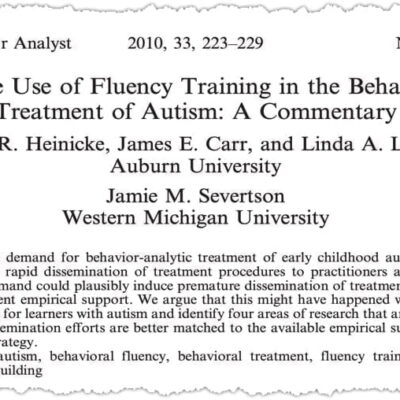Matter of Great Consequence: The Standard Celeration Chart
Richard M. Kubina Jr.
Recent investigations reveal a high error rate in the construction of linear graphs within fields like behavior analysis and special education, impacting critical aspects such as analysis and decision-making. The Standard Celeration Chart is presented as a significantly more effective alternative, promising to enhance the quality of data visualization, precision in metrics, and analytics for treatments, especially for individuals with Autism Spectrum Disorder (ASD). From the 2017 Michigan Autism Conference.
This product has been discontinued.
You may also like…
-
Multimedia Tutorial

2 BCBA CEUs
Mastering the Basics of Visual Analysis
Katie Wolfe & Timothy A. Slocum4.30 out of 5(125)$19.99 Add to Cart -
Article Quiz

0.5 BCBA CEU
On the Use of Fluency Training in the Behavioral Treatment of Autism: A Commentary
Megan R. Heinicke, James E. Carr, Linda A. LeBlanc, & Jamie M. Severtson4.11 out of 5(18)$4.99 Add to Cart -
Interactive Video

1.5 BCBA CEUs
B.F. Skinner on Education
B.F. Skinner4.97 out of 5(30)$14.99 Add to Cart

